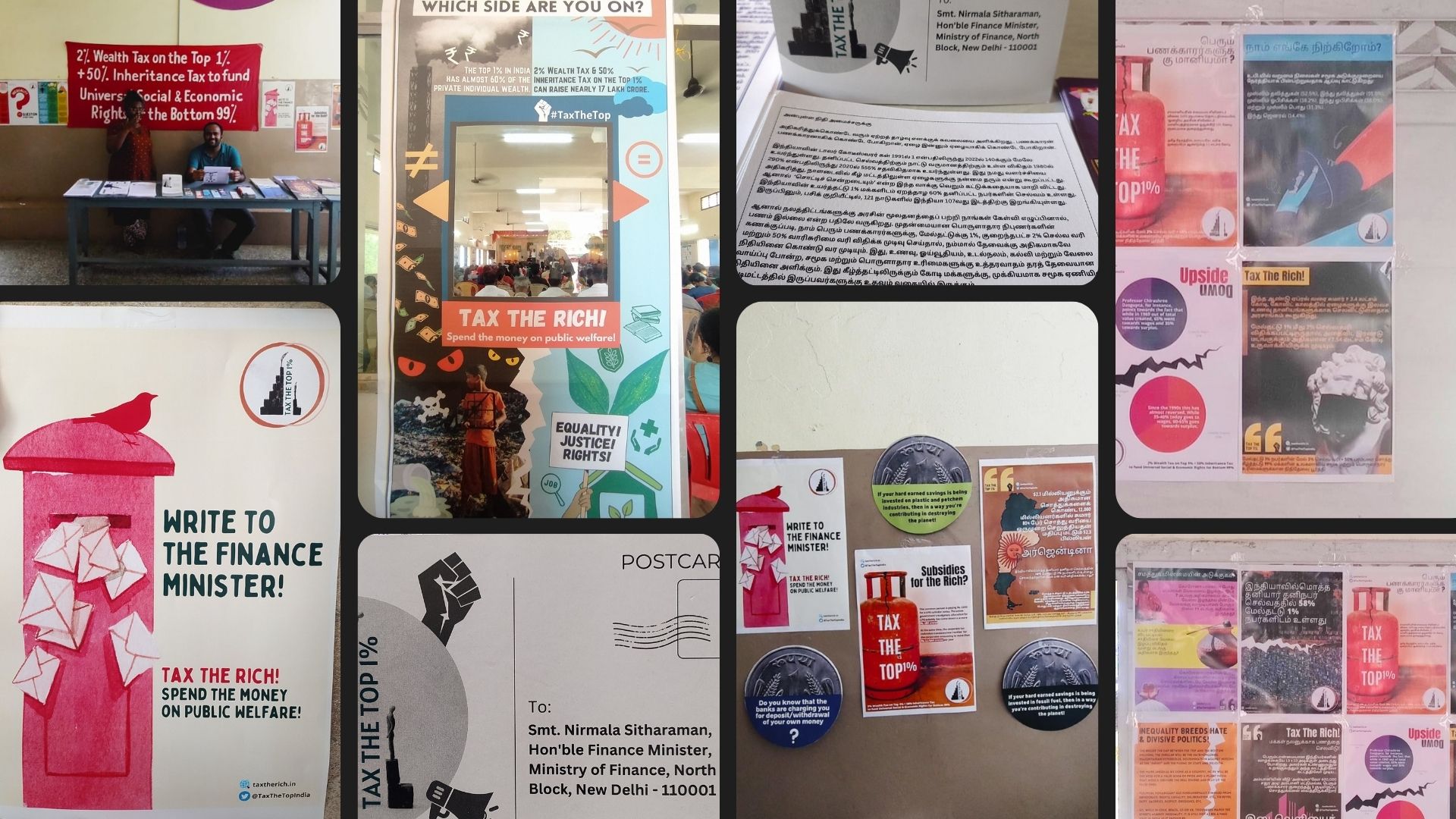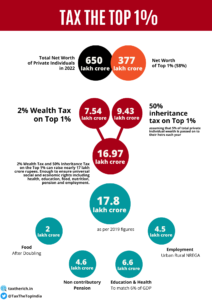 The ever widening inequality in our country can be reversed only by taxing the rich. Even during the two years of the Covid-19 pandemic the income that Mukesh Ambani earned is equivalent to what a NREGA Worker will make in 9000 years. When 24% of the Indians could not earn even Rs 3000 per month, the wealth of Gautam Adani increased 12 times reaching Rs.9.5 lakh crores. The rich are getting richer through subsidies, tax concessions, tax holidays, viability gap funds, public private partnerships, cheap loans from public sector banks, loan waivers, compromise settlements and other concessions.
The ever widening inequality in our country can be reversed only by taxing the rich. Even during the two years of the Covid-19 pandemic the income that Mukesh Ambani earned is equivalent to what a NREGA Worker will make in 9000 years. When 24% of the Indians could not earn even Rs 3000 per month, the wealth of Gautam Adani increased 12 times reaching Rs.9.5 lakh crores. The rich are getting richer through subsidies, tax concessions, tax holidays, viability gap funds, public private partnerships, cheap loans from public sector banks, loan waivers, compromise settlements and other concessions.
By taxing the top 1% rich Indians with 2 % wealth tax and 50% inheritance tax, there will be sufficient money for family welfare all over Tamilnadu for 40 years. By collecting 2% wealth tax from the top 1%, the government can get Rs.7.54 lakh crore. Argentina has mobilized $230 million from 10,000 super rich from the country. That is equal to Rs.18,300 crore! In 2021, Bolivia gathered $32 million (Rs.25,600 Cr) from 203 super rich of the country. In our country, the top 1 % own 58% private wealth.
These issues were discussed in the Jan Mela named as ‘Social Harmony and People’s Rights festival’ at Kanyakumari for 3 days.
Com.Thomas Issac, former Finance Minister, Kerala explained how taxing the rich can benefit the larger population. He narrated how Rs.3000 crore were given as loans to SHGs with zero interest during the pandemic and 18 essential items were distributed free to all the people through the public distribution system.
He explained how by providing free education and free health the Human Development Index could be improved in Kerala. He mentioned how the total GST collected by the Union government from common man can be spent for the welfare of majority of the people. The Kerala government could provide a Rs.1600 per month pension to the elderly even by borrowings. Instead of transferring wealth to a few corporates the government should transfer wealth to the lower income groups through employment, better wages, increasing farmers income and where necessary even direct transfer of money to the poor.
Mr. Nikhil Dey, one of the founders of Mazdoor Kisaan Shakti Sangathan shared how the Rajasthan government could be influenced through long and sustained campaign and agitations to provide benefits to the poor. He mentioned the following benefits arising out of their agitation.
- In addition to rice or wheat, 1kg dal, 1kg oil, 1 kg salt and 1kg masala are given free to the poor
- 100 Units of electricity is free and 200 Units free for farmers.
- 50000 libraries have been announced along with the staff, a proper curriculum, cultural activities, E-Learning and E-Seva Centres
- 50% concession on bus fare is given to the women.
A law has been passed to give social security to gig workers like Ola and Uber drivers, and Zomato, Swiggy, Amazon and other delivery workers by collecting a cess on every transactions they are earning.
The Jan Mela discussed the need of campaigns that bring the issues of budget, taxes and government schemes at the forefront and among the people. Today we need to run campaigns such as ‘People’s Budget for the People, People’s money for the welfare of People! These discussions and many more continue in the Jan Melas across the country with Tax the Top being one of the main agenda.
Thomas Franco is the former General Secretary of All India Bank Officers’ Confederation and a Steering Committee Member at the Global Labour University.
Centre for Financial Accountability is now on Telegram. Click here to join our Telegram channel and stay tuned to the latest updates and insights on the economy and finance.


